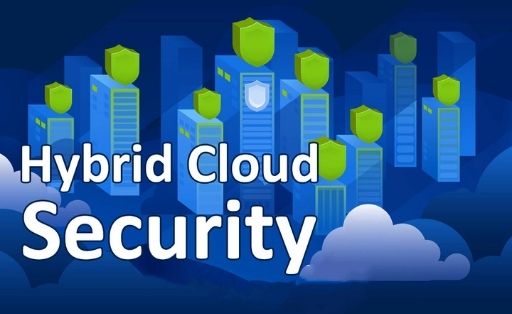In the world of cloud computing, there are several different types of clouds. Public clouds are usually created to serve multiple organizations. Private clouds serve a single organization. Combining two or more of the different cloud types results in a hybrid cloud. Hybrid clouds are a magnificent, flexible, budget-friendly cloud solution. More importantly, they’re scalable and able to handle most business needs. As it turns out, some of the biggest security issues actually happen during the setup portion of the process. Here are five paths to a better hybrid cloud solution to get your organization’s hybrid cloud up and running securely.
Recommended: Best Practices For Choosing An Endpoint Security Platform

Encryption
Encryption in your hybrid cloud is critical to keeping it secure. Encryption scrambles and mixes up data as it’s transferred, requiring a decryption key to make the data useful again. When data is encrypted, anybody that intercepts it will not be able to use it unless they have access to that decryption key. Usually, data gets encrypted as it’s being transferred from the cloud to a user, but sometimes data can be encrypted as well stored within the cloud. Encryption keeps your data secure, protected from theft, and safe against outside threats so that you can keep it and your customers safe from the dangers associated with stolen/compromised to data.
Recommended: Top Ways to Secure Data in Your Start-Up Business
Automation
Automation is a fantastic tool for enhancing cloud operability. When you automate the cloud, it lets you scale it better and suited to any potential uses your organization requires. Managing complex amounts of software is easy with an automated solution, as is limiting access to the cloud to your administrators. Better yet, automation helps provide the end user with a better overall experience, ensuring return customers and a more flexible environment for working with resources in the cloud. Whether you’re in the business of e-commerce or a platform providing life insurance quotes, automation offers high value and utility for your operation.
Enhanced Security
Attacks can happen anywhere; on your server, within your workload, and even on your container platform! Understanding indicators of compromise or attack while being able to maintain your workflow is more critical than ever before. Implementing advanced hybrid cloud security across your entire organization is necessary for protecting your valuable data. Malware and ransomware are problems across all areas of computing. An attack can happen at any time through multiple avenues. So implementing a cloud security solution that covers applications, workloads, migration, networks, and containers is going to be the best way to protect your cloud from potential threats, breaches, or disruptions.
Compliance Checks
When over 87% of businesses employ some kind of hybrid cloud solution, compliance becomes increasingly important.
Compliance means ongoing risk assessment, audits, and reporting relevant to your cloud. Some items are maintained on premises while others go into the public cloud. Managing your cloud around policies means taking an active role in establishing and maintaining effective compliance measures. Employees need to know what the compliance standards are and how to implement them effectively. To further enhance compliance, the organization should come up with security standards, data storage standards, data transfer, and guidelines for working with data within the public and private aspects of your hybrid cloud. HIPAA, SOX, GDPR, ISO, and PCI are all important compliance standards to operate with when using a hybrid cloud solution.
Tightening Access
One of the best security methods (outside of end to end encryption) is tightening access to the cloud. There are a lot of things that can happen when somebody has access to data across the cloud. They might decide to make copies of it and distribute them without your knowledge. Perhaps they’re going to use it for developing their own side of business. Sometimes people just forget to log out. Then there’s issues with viruses and malware on particular user’s computers that they may not be aware of as they access your cloud. That’s one reason why tightening access to the cloud is critical. Fewer people being able to access valuable data means less chance/opportunity for compromise. Access Control lets you monitor and manage permissions so you know who’s logging in, when they’re doing it, and what they’re doing. Implementing identity and access management into your cloud security routine is essential and simple, making it one of the most effective security methods for this computing platform.
